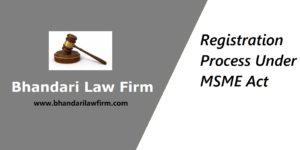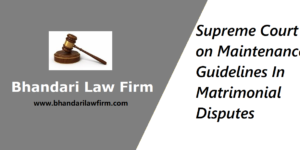Search Warrants Criminal Procedure Rules : As Per CRPC
Search means an action of to look through or examine carefully a place, area, person, object etc. in order to find anything concealed or for the purpose of discovering evidence of a crime and it can only be carried out under proper and valid authority of law. The search should have a nexus with the crime, it cannot be a random search Search Warrants Criminal Procedure
A search warrant is a written order issued by a Judge/ Magistrate or a Court to a police officer or any other person authorizing them to conduct a search of a person, location or vehicle for evidence of a crime and confiscate illegal evidence of a crime. In the case of Kalinga Tubes Ltd. v. D. Suri, AIR 1953 Ori 153; the court cautioned the police officer to use search warrant with a little precaution and care and do not abuse their power. Search Warrants Criminal Procedure
Section 165 of CrPC mentions the circumstances and the way in which search is carried out by a Police Officer. A police officer while making an investigation should have reasonable grounds for believing that something very necessary for the purpose of investigation into an offense which he is authorized to investigate may be found in any place within the local limits of the police station in which he is in charge. He is also required to make a record in writing specifying his grounds of belief and why the search was conducted within the limits of such station.
When can search warrants be issued by court?
- Where a court has reason to believe that a person to whom summons or orders under Section 91 and a requisition under Section 92(1) is addressed will not produce the things or documents as required.[Section 93(1)(a)] Search Warrants Criminal Procedure
- Where the thing or document in question is not known to the court to be in the possession of any person. [Section 93(1)(b)]
- Where the court considers that the purposes of any inquiry,trial or other proceedings will be served by general search or inspection. Search Warrants Criminal Procedure
When can search warrant be issued by the Magistrate?
- Section 94-If a District Magistrate, Sub-divisional Magistrate or Magistrate of the first class gets any information and after inquiry of the same, thinks it necessary or has reason to believe that a place is being used for the deposit or sale of stolen property or for the deposit, sale or production of any objectionable article or any such objectionable article which is deposited in any place, he may authorize any police officer by way of a search warrant to enter, search or take in possession any property to which this section applies.
- When any newspaper, book or document, wherever printed, contains any matter, the publication of which is punishable under section 124-A, 153-A, 153-B, 292, 293 or 295-A of Indian Penal Code, 1860, the State Government may, by notification stating the reasons for such action, declare every copy of such newspaper, book, or document, to be forfeited to the government. After such action, any Magistrate may, by a warrant, authorize any police officer not below the rank of a Sub-Inspector to enter upon and search for such copies in any premises where there is a sufficient reason for suspicion. (Section 95)
- If any District Magistrate, Sub-divisional Magistrate or Magistrate of the first class has sufficient reason to believe that he can issue a search warrant to a person against a person who is kept under confinement for an offense, then he can direct the person to whom he issued a search warrant to search for the person so confined. Such a search will be made in accordance therewith, and if found, the person shall be immediately taken before a Magistrate who will make such order as appears to be proper. (Section 97).
- Power to compel restoration of abducted females – A Magistrate may upon a complaint made on oath of the abduction or unlawful detention of a woman, or of a female child under 18 years of age, for any unlawful purpose, make an order for the instant restoration of such woman to her liberty. It is also issued to such female child to her husband, parent, guardian, or other person having lawful charge of such child and can compel compliance with such order necessary by using sufficient force (Section 98).
What happens when a place is being suspected?
Section 94 of CrPC provides for the search of a place that is suspected to contain stolen property, forged documents etc. It states that a District Magistrate, Sub-divisional Magistrate or Magistrate of first-class may issue warrant to a police officer above the rank of a constable authorizing him to enter, search, take possession of any property, convey any article or to take into custody upon information and inquiry as the Magistrate thinks necessary or has reason to believe that any place is used for deposit or sale of stolen property, or for the deposit or sale of stolen property or for the deposit, sale or production of any objectionable article to which this section applies. The objectionable articles as mentioned in this subsection (2) are counterfeit coin, pieces of metal made in contravention of Metal Tokens Act,1889, counterfeit currency or stamps, forged documents, false seals, obscene seals or objects referred to in Section 292 of IPC, 1860 and instruments or materials used for the production of any of the article mentioned above. Search Warrants Criminal Procedure
(Click Here To About Our Criminal Practice)
What happens when there is a search for those wrongfully confined?
There is a provision under Section 97 of the Code of Criminal Procedure, 1973 which provides for direction in case of search of persons wrongfully confined. It states that a District Magistrate, Sub-divisional Magistrate or Magistrate of first-class has enough reason to believe that a person who is confined under such circumstances that the confinement amounts to an offense, he may issue a search warrant, and the person to whom such a search warrant is issued may be directed to search the person so confined. And such search shall be made in accordance therewith, and the person on being found shall be instantly taken before a Magistrate and he shall make such order as in the circumstances of the case seems proper. Search Warrants Criminal Procedure
What is the procedure to search a place without warrant?
Section 165 prescribes procedure undertaken by a police officer to search a place without a warrant. It states that whenever an officer in charge of a police station or any police officer making an investigation has reasonable grounds to believe that in the process of investigation, there are some things necessary for an offence, which he is authorised to investigate within the local limits of his police station without unnecessary delay, can search even without a search warrant. He is also required to specify the reason for such a search, cause of search, etc. Section 165(3) provides that where a police officer is unable to conduct the search in person, and there is no other person competent to carry out the search at the time, then he may after recording in writing his reasons for so doing, require any officer subordinate to him to make the search. The senior authorizing for the same has to give the subordinate officer an order in writing, specifying the place of search, the reason for which the search is made and subsequent to this the subordinate may thereupon search for such thing in such place. The copies made by the police officer undertaking search shall be sent to the nearest Magistrate empowered to take cognizance of the offense. On the application of the owner or occupier of the place searched shall be furnished, free of cost with a copy of the same by the Magistrate.
What is the procedure of search by a police officer during the investigation?
The procedure adopted by a police officer during the search in an investigation is provided in Section 165. Section 165(1) provides that whenever an officer in charge of a police station or a police officer making an investigation in a particular matter has reasonable grounds for believing that anything necessary for the investigation into any offense on which he is authorized to investigate may be found in any place within his local limits and that thing according to him be otherwise obtained without unnecessary delay. Such officer may record the grounds of his belief in writing and prescribing in such writing the thing for which the search is made, or cause a search to be made with the local limits of his station. Section 165(2) authorize the police officer to conduct the search in person. Section 165(3) states that if he is unable to conduct the search in person, he may after recording in writing the reason for so doing authorize a person subordinate to him to conduct search. Section 165(4) says that all the general conditions regarding the search warrant will be applied to this section as contained in Section 100. Section 165(5) provides that copies of the record made in sub-section (1) and (2) should be sent to the Magistrate who is empowered to take cognizance of the offence. The owner or occupier of the premises can also, on the application, be provided with a copy of the same that is present with the Magistrate, without any cost.
What is the procedure to Search In the presence of magistrates?
Section 103 of CrPC states that the Magistrate may direct search in his presence. It provides that any magistrate may order a search to be made in his presence of any place in which he is legally competent to issue a search warrant.
What is the procedure of Search in the limits of another police station?
Section 166 provides the conditions under which the search is conducted in the limits of another police station. Sub-section
(1) states that an officer in charge of a police station or a police officer not below the rank of sub-inspector making an investigation may if he requires an officer of another police station whether in the same or different district to cause a search to be made in any place within the limits of the former officer’s jurisdiction. Sub-section
(2) the officer shall now carry out the search according to the provisions of Section 165 and forward the thing found on such search to the police officer at whose request the search is made. Sub-section
(3) permits an investigating officer who belongs to one police station to search any place that belongs to the limits of another’s police station in certain emergency situations. The one that has been expressly mentioned is when there is a possibility of delay in requisitioning the services of police personnel of another police station and if such delay can destroy the very purpose of the search. Sub-section
(4) says that the officer in charge of conducting the search has to send a notice of search to the officer within whose local jurisdiction such place is situated and shall also send a copy of the notice to the nearest Magistrate. Sub-section
(5) says that on the application of the owner of the premises of the place searched, he shall be provided a free copy of the said notice that was sent to the Magistrate.
What is the procedure of search for false weights and measures?
Section 153 provides for the inspection of weights and measures. This section authorizes a police officer in charge of a police station to enter any place within the limits of such station for the purpose of inspecting or searching for any weights or measures or instruments for weighing, used or kept there without a warrant. The police officer must have a valid reason to believe that there are presence of false weights, measures or instruments in that place. It also provides that if he finds such weights, measures or instruments to be false, he has the option of seizing them or give information of such seizure to the Magistrate within the jurisdiction.
What are the consequences of non-compliance with the provisions relating to searches?
Section 460 of CrPC prescribes that if a search warrant is issued under Section 94 by a Magistrate who is not empowered by law to issue such warrant will not vitiate(destroy or impair) the proceedings. A search warrant for the search of a place that is suspected to contain stolen property, forged documents, etc can only be issued by a District Magistrate, Sub-divisional Magistrate or Magistrate of the first class. But, if a situation arises that the warrant is issued by a person other than a Magistrate though erroneously, but in good faith, then the warrant will not become ineffective just because the Magistrate was not empowered to issue such a warrant.
Section 461 also provides for irregularities which can vitiate the proceedings. It says that under Section 93(3) only a District Magistrate or a Chief Judicial Magistrate can issue a warrant for a document, parcel or another thing in the custody of postal or telegraph authority. According to Section 461 if a Magistrate who is not empowered by law to issue such a warrant, issues the same, will make the warrant ineffective.
A Magistrate, not empowered by law, issues a search warrant in case of wrongful confinement under Section 97, then the warrant will become illegal and any entry into such place subsequent to such illegal warrant shall be considered to be without legal authority.
When are magistrates not empowered to issue a search warrant?
Section 460 states the circumstances in which a search warrant is not vitiated even when it is issued by a Magistrate who has no authority to do so. A search warrant for the search of a place that is suspected to contain stolen property, forged documents, etc can only be issued by a District Magistrate, Sub-divisional Magistrate or a Magistrate of the first class. But, if a situation arises that the warrant is issued by a person other than a Magistrate though erroneously, but in good faith, then the warrant will not become ineffective just because the Magistrate was not empowered to issue such a warrant.
Section 461 of CrPC clearly provides for conditions in which a search warrant will be illegal when a Magistrate who is not empowered issues a warrant. It says that under Section 93(3) only a District Magistrate or a Chief Judicial Magistrate can issue a warrant for a document, parcel or another thing in the custody of postal or telegraph authority. According to Section 461 if a Magistrate who is not empowered by law to issue such a warrant, issues the same, will make the warrant ineffective.
When Search is conducted without warrant by police officers not authorized
It has been comprehended from various sections like Section 153, 165 and 166, that a place can be searched by a police officer of a certain rank or any other person authorized by law without a warrant. A search by any other police officer or any other person would be illegal and the sentry into such place will also be unlawful. Even a search by a police officer outside the limits of his police station and in the situations where he is not authorized to do so would be without legal authority and illegal. [Section 166(3)]. Section 165 of the CrPC provides for an exception to this, which states that where there is reasonable ground for if the search is not conducted immediately, then the valuable evidence and facts will be destroyed then in such cases, he may straight away search, after sending advance intimation to the court. It has been comprehended from various sections like Section 153, 165 and 166, that a place can be searched by a police officer of a certain rank or any other person authorized by law without a warrant. A search by any other police officer or any other person would be illegal and the sentry into such place will also be unlawful. Even a search by a police officer outside the limits of his police station and in the situations where he is not authorized to do so would be without legal authority and illegal [Section 166(3)]. Section 165 of the CrPC provides for an exception to this, which states that where there is reasonable ground for if the search is not conducted immediately, then the valuable evidence and facts will be destroyed then in such cases, he may straight away conduct the search, after sending advance intimation to the court.
What happens when there is contravention of the search procedure?
Section 100 of CrPC provides general procedures that need to be necessarily followed at the time of the search. Besides this, Section 165 and Section 166 also provides for additional procedures to be followed, when the search is made by a police officer without a warrant. Contravention of these articles would make the search illegal or irregular. Whether the contravention would vitiate the proceedings or not is provided in Section 460 and Section 461, discussed above.
How can the search be conducted with the consent of the occupant?
If the entry into the place of search is with the consent of the occupant of such place, then the search and recovery will not be affected on the ground that the search procedure mentioned under Section 100 and Section 165 was not followed. In addition to this, where it is proved that the articles were produced by the accused himself, Section 165 of CrPC does not apply.
Author: This article was written by Richaa Mukhopadhyay, B.A. LLB(Hons), CS(executive), ALSK, ICSI, student of Amity Law School, Amity University, Kolkata.
Note: For any further information or any query you may contact us on 9855677966 or via email info@bhandarilawfirm.com



